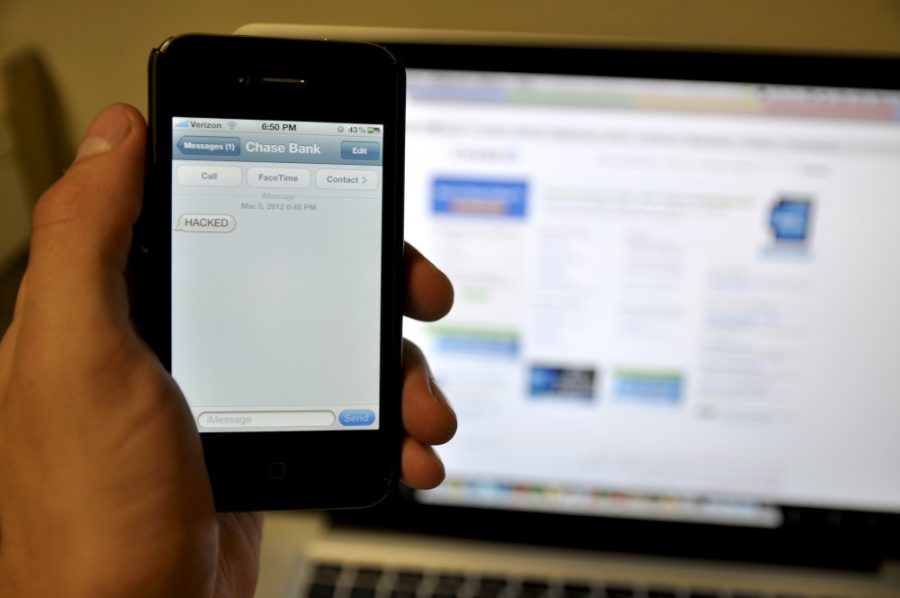Since the introduction of smartphone technologies, users have realized they are more susceptible to personal information theft.
About 12 million Americans were victims of identity theft in 2011, a 13 percent increase from 2010, according to a report released by research firm Javelin Strategy and Research. Individuals whose personal information is taken from a data breach, like certain information on a smartphone, are 9.5 times more likely to become a victim of identity fraud, the report said.
It’s easier for companies and hackers to access users’ “supposedly secure” personal information because smartphones are being used and programmed like computers, according to Kelley Bogart, a senior information security analyst at University Information Technology Services. Due to this, smartphone users are at a higher risk to be hacked since computer hackers can transfer their skills to smartphones.
Bogart said surfing and accessing the Internet on phones subjects smartphone owners to different threats than other phone owners. One threat, she said, comes from downloading apps. The reason apps can be linked to smartphone hacking is because not all apps are checked by a legitimate source, and some do not go through any sort of “vetting” process at all. Vetting, Bogart added, is when someone looks through the embedded codes of an app to make sure it does what it needs to do, and nothing more.
Bogart said Android phone users are at a higher risk because not all apps for the phone are necessarily purchased through a store, like Apple’s app-specific store. Although it is safer to buy apps through the Apple store, it is still not 100 percent safe, she said.
Another reason smartphone users have become more susceptible to identity theft is due to the terms of agreement on apps, Bogart said. For example, the user agreement for Tiny Flashlight, a free app for Andriod phones, says that it may have access to personal information on the user’s phone including texts, pictures, memory cards, the video recorder and even emails, she said.
Matt Hawkins, a first-year graduate student in management information systems, said the best way for smartphone users to protect themselves from theft is to turn off their smartphone when it’s not being used and to set the phone to automatically lock after a certain amount of time.
People also tend to “jailbreak” their phones to get free data from various sources, like apps. Hawkins said that jailbreaking “leaves the phone vulnerable to different types of attacks.”
As an Android phone user, Hawkins added that another good way to prevent attacks is to download an all-in-one security app, which has the ability to remotely wipe data from the phone, provides anti-virus software and provides a backup program that stores information if it is lost.
Apps aren’t the only avenues for stealing sensitive information. Theft can also be linked to how users access the Internet, according to John Sileo, an identity theft expert. He said when using free Wi-Fi hotspots, like in coffee shops, it is much easier for criminals to access personal information.
“Tests conducted showed that security experts were able to obtain usernames, passwords and messages from phones using Wi-Fi in public places,” Sileo said.
For smartphone and tablet users, Sileo suggested taking precautionary measures for better protection against identity theft. It is necessary to turn on password protection for the device, enable wireless data wiping in case the device is lost, make sure to not use unsecured Wi-Fi hotspots, limit personal data stored and to physically lock up the device when it is not being used, he added.









